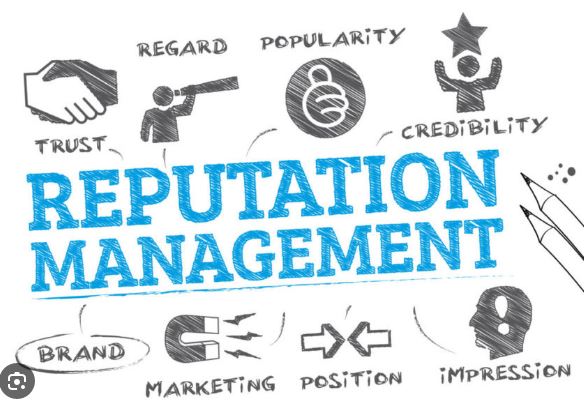The Importance of Reputation Management in the Age of Deception and Propaganda

Imran Ghaznavi
In today’s fast-paced and interconnected world, where information spreads at lightning speed, reputation management has become an essential tool for individuals, businesses, and even governments. The age of deception and propaganda presents significant challenges, making it crucial for entities to actively protect and cultivate their reputations.
Gone are the days when reputation management was only associated with public figures or corporate giants. With the rise of social media and the democratization of information, everyone now has a platform to express their opinions and influence public perception. However, this free flow of information has also led to a surge in misinformation, fake news, and malicious campaigns that can easily tarnish one’s reputation.
One of the key reasons why reputation management is paramount today is the potential impact on personal and professional lives. In a hyperconnected world, a single negative comment or false accusation can spread like wildfire, causing irreparable harm to an individual’s reputation. Job prospects, business opportunities, and personal relationships can all be adversely affected. It is therefore vital to proactively manage and mitigate such risks.
For businesses, reputation management has become even more critical. Consumers are no longer solely reliant on traditional advertising and marketing tactics to inform their purchasing decisions. They turn to online reviews, social media discussions, and influencers for guidance. A negative online review or a viral social media post can have a lasting impact on a company’s bottom line. Building and maintaining a positive reputation is vital for attracting and retaining customers, enhancing brand loyalty, and driving growth.
Moreover, the rise of deception and propaganda on a broader societal level has highlighted the need for reputation management in the public sphere. Manipulative campaigns can shape public opinion, distort facts, and undermine trust in institutions. Political figures, organizations, and governments must be vigilant in countering such efforts by actively managing their reputation, dispelling misinformation, and promoting transparency.
So, what can individuals and entities do to effectively manage their reputations in the age of deception and propaganda?
First and foremost, it is crucial to monitor what is being said about oneself or one’s organization. By staying informed and proactive, one can address issues promptly and take corrective action when necessary. Employing social listening tools, monitoring online reviews, and engaging with online communities can help identify potential risks and opportunities.
Secondly, it is important to establish a strong online presence and actively manage digital assets. Building a reputable website, creating engaging content, and cultivating a positive social media presence can help shape public perception. Responding to feedback and engaging with stakeholders demonstrates transparency and a commitment to open communication.
Thirdly, developing relationships with influencers, journalists, and industry experts can provide a shield against potential reputation attacks. Positive endorsements and media coverage from trusted sources can help counteract negative narratives and build credibility.
Furthermore, it is essential to have a crisis management plan in place. Reputation damage can occur swiftly and unexpectedly, so having a well-prepared response strategy is crucial. Identifying key spokespersons, monitoring media coverage during a crisis, and responding swiftly and honestly can help mitigate the impact on reputation.
Lastly, individuals and organizations must recognize the power of ethical behavior in maintaining a positive reputation. Upholding high ethical standards, delivering on promises, and being accountable for actions can foster trust and goodwill among stakeholders.
In conclusion, reputation management has become increasingly important in the age of deception and propaganda. With misinformation and malicious campaigns posing significant risks to individuals, businesses, and public institutions, actively managing and safeguarding one’s reputation is crucial. By monitoring online conversations, maintaining a strong digital presence, cultivating relationships, and embracing ethical behavior, entities can navigate these challenges and protect their hard-earned reputation.
Related News

Will the U.S. Follow the Soviet Union’s Collapse?
By Qamar Bashir The warning comes not from an enemy, but from within the ranksRead More

Taxes on Mobile Devices: It’s FBR, Not PTA
Muhammad Farooq FBR taxes and duties—commonly referred to as PTA taxes on mobile phones—have becomeRead More


Comments are Closed